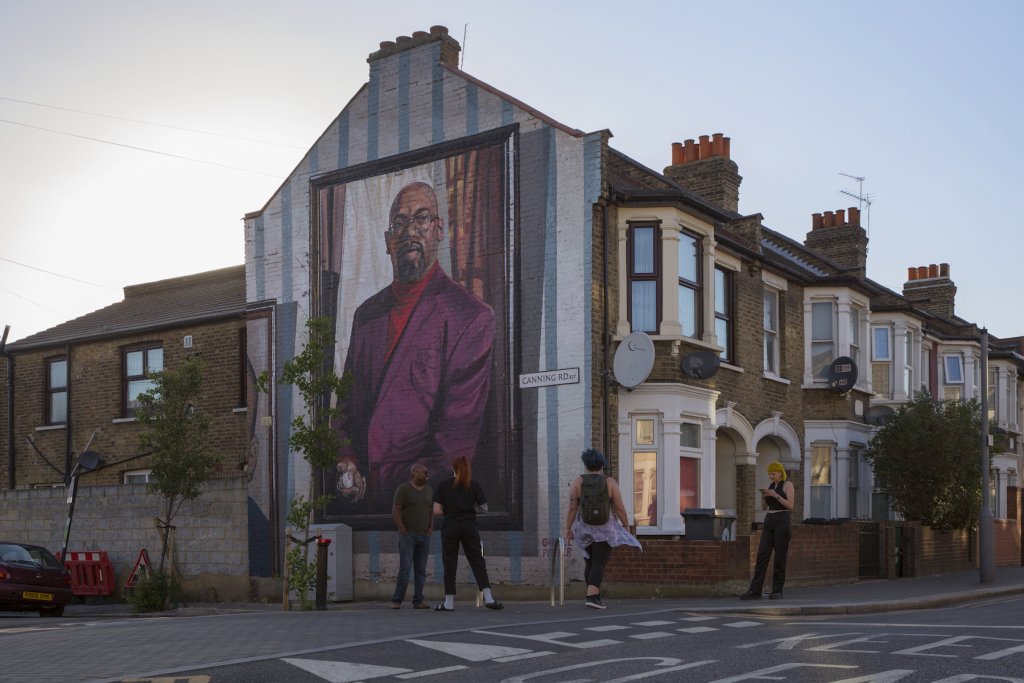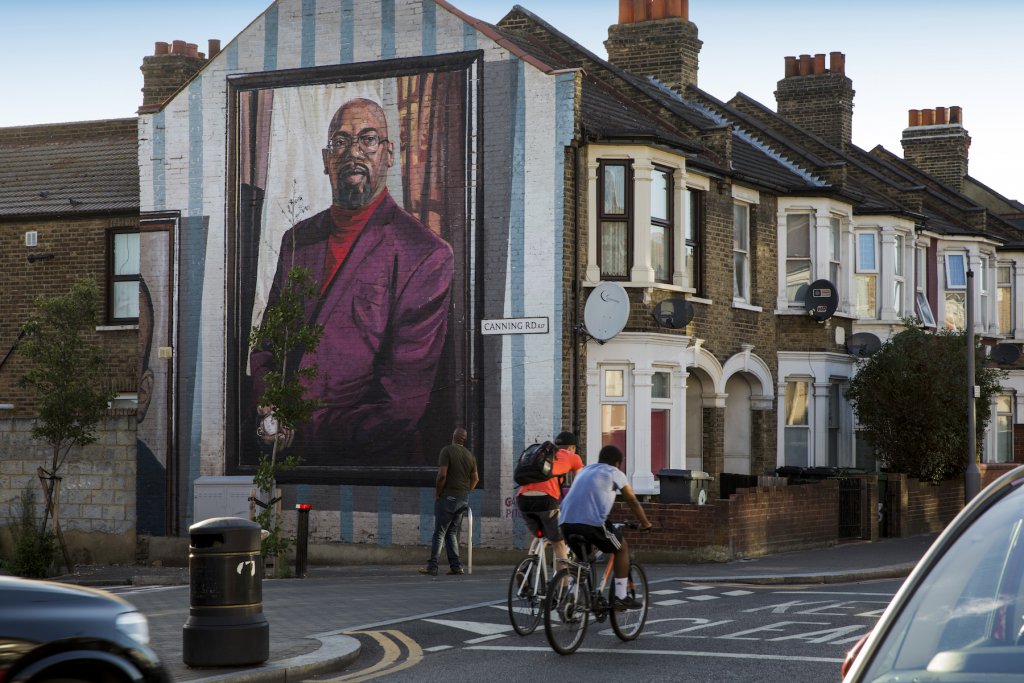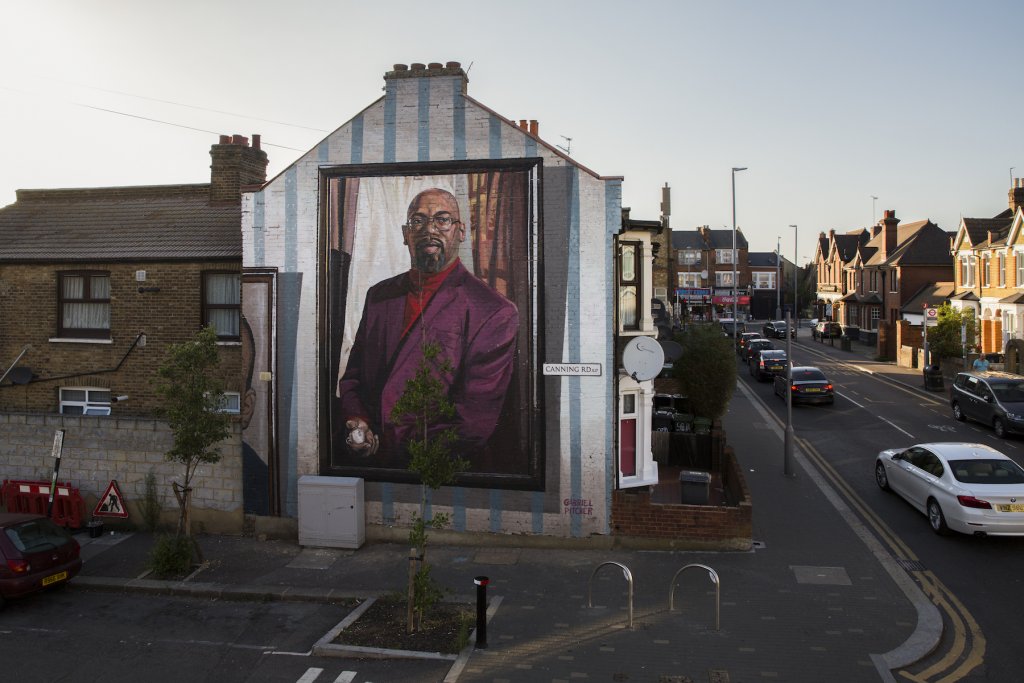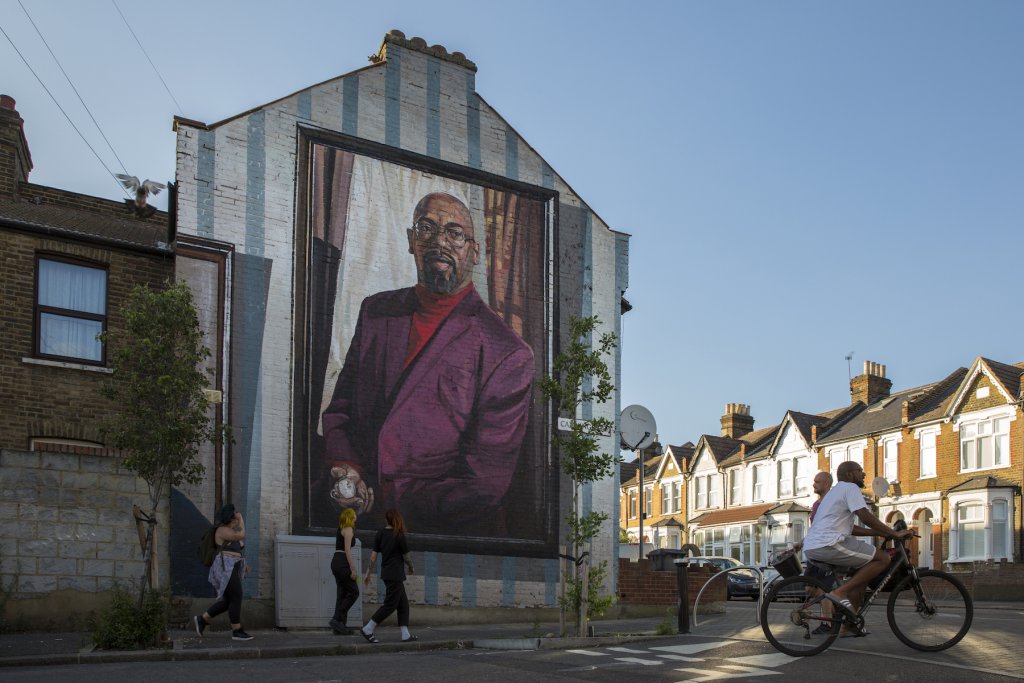A new mural of local community youth worker Steve Barnabis has emerged in Walthamstow from UK artist Gabriel Pitcher, curated by Wood Street Walls and coordinated by creative director Charlotte Pyatt.
The piece is the latest in a series of creative works raising awareness and action for Project Zero, a community interest CIC tackling complex issues around vulnerable youths and knife crime in London, which Steve Barnabis is involved with.
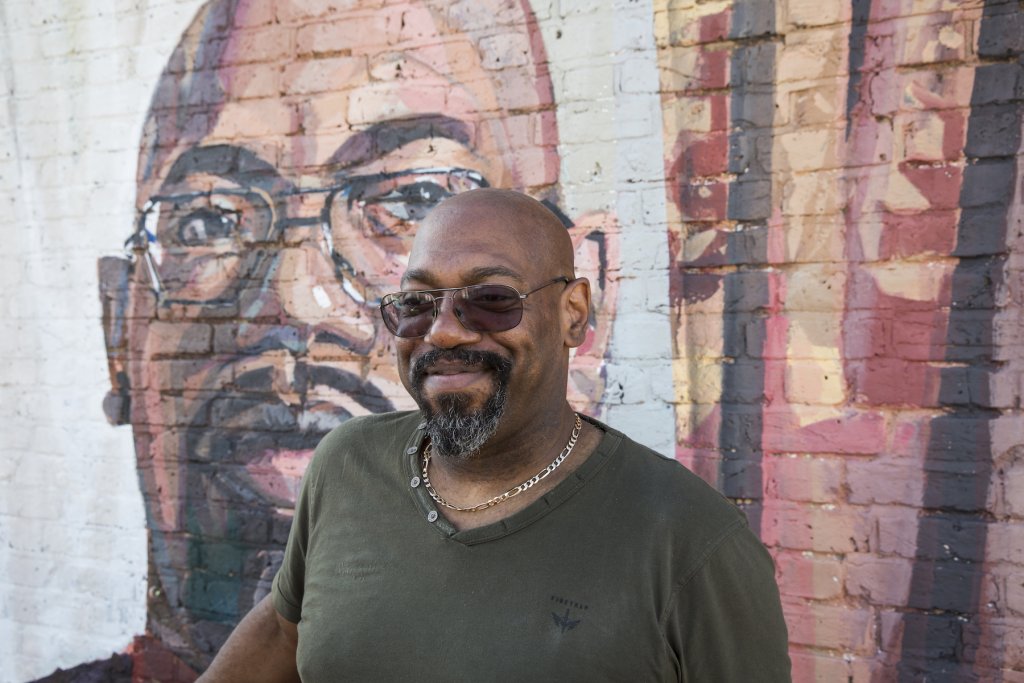
Steve Barnabis, a local youth worker with a Community Interest Company @ProjectZeroWF tackling the complex issues around vulnerable youths and knife crime in London.
Gabriel Pitcher’s art explores the relationship between art and social narratives and painted Steve Barnabis, a youth worker in East London, his work is inspired by his own tragic experience of familial loss from knife crime in London.
Steve Barnabis, a local youth worker with a Community Interest Company @ProjectZeroWF tackling the complex issues around vulnerable youths and knife crime in London.
The loss of young life through violent crime is an accelerating public health crisis and tackling these issues requires attention beyond the police and elected officials. It demands a process of demystifying governmental policy to ensure engagement at a community level.
“If we are serious about creating and maintaining sustainable societies, we need a system that empowers our community leaders working towards positive change. In this powerful moment of reflection for our social infrastructure, we need our local authorities to do better.” Gabriel Pitcher
This portrait intends to spark a dialogue on fundamental failings in our social infrastructure, where projects like Steve’s working in youth provisions fight year on year against cutbacks and setbacks. After losing his space 2 years ago, Steve has been struggling to provide essential provisions from smaller spaces not fit for purpose. Steve now has a positive dialogue with Waltham Forest Council to secure an appropriate venue for his creative projects, which focus on social inclusion and providing support and resources for local families. If all goes well, they acquire the space before the end of the year.
Steve Barnabis, a local youth worker with a Community Interest Company @ProjectZeroWF tackling the complex issues around vulnerable youths and knife crime in London.
Gabriel Pitcher’s mural takes the interior wall outside, the home spills into public space, an attempt to restore the sense of community lost in our urban environments. Encased in a wooden frame, the figure of Steve is shown seated, in a palette and pose reminiscent of traditional celebratory portraits of kings or popes. In his hand, he holds a timepiece, a symbol to the lost time waiting for change. To the left, another picture can be seen out of frame, a portrait of 14-year-old Correy Junior Davis “CJ”, whose story is the subject of an upcoming documentary film, CJ tragically lost his life in 2017 in what was incorrectly labelled a ‘gang-related’ incident. CJ attended Steves youth club prior to its closure.
Steve Barnabis, a local youth worker with a Community Interest Company @ProjectZeroWF tackling the complex issues around vulnerable youths and knife crime in London.
“I have seen first hand the positive impact Steve and Project Zero have had on young people in this borough, and the void it has left in the community. I also recognize the significant financial challenge faced by local authorities suffering cuts from central government funding. These critical services are desperately needed, programs like Steve’s have a life-altering effect on the people using them.” Mark Clack, Wood Street Walls
The portrait continues the recent and urgent critique of the monuments and portraits characterising our public spaces following the Black Lives Matter movement. Gabriel’s intent is to flip the traditional vision of patronage portraiture, to champion local people working at grassroots to protect and empower their communities. The hope is that the art can bridge a connection with the local community to the issues Steve confronts daily, but to also spark a dialogue about the importance of stability in reinforcing sustainable cities locally and globally.
Steve Barnabis, a local youth worker with a Community Interest Company @ProjectZeroWF tackling the complex issues around vulnerable youths and knife crime in London.
“We are currently working towards a long term legislative change with our friends at Wood Street Walls addressing the disparity between housing developments and community impact. In the short term, we will be independently raising funds for the venue that we hope to secure in the very near future.” Steve Barnabis, Project Zero
Steve is now launching a crowdfunding campaign to raise £150,000, 1 year of activities and services to support his community, which like so many others have been exacerbated by COVID-19, further straining critical issues such as domestic abuse and food poverty.
